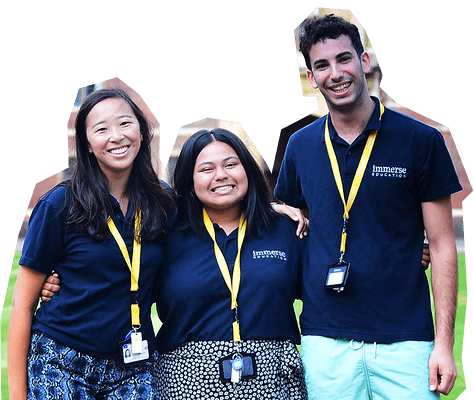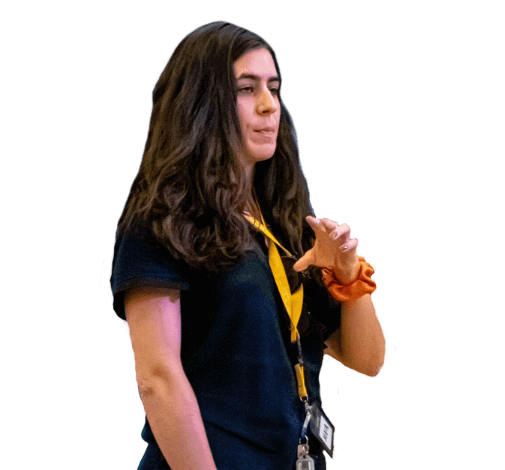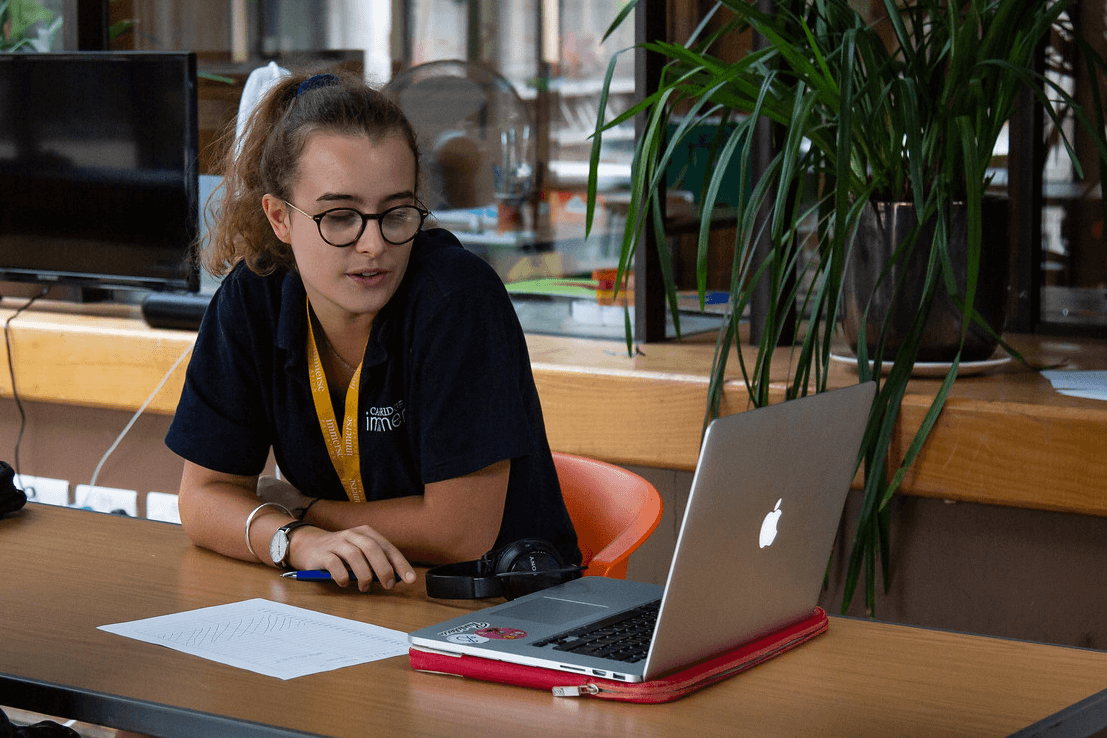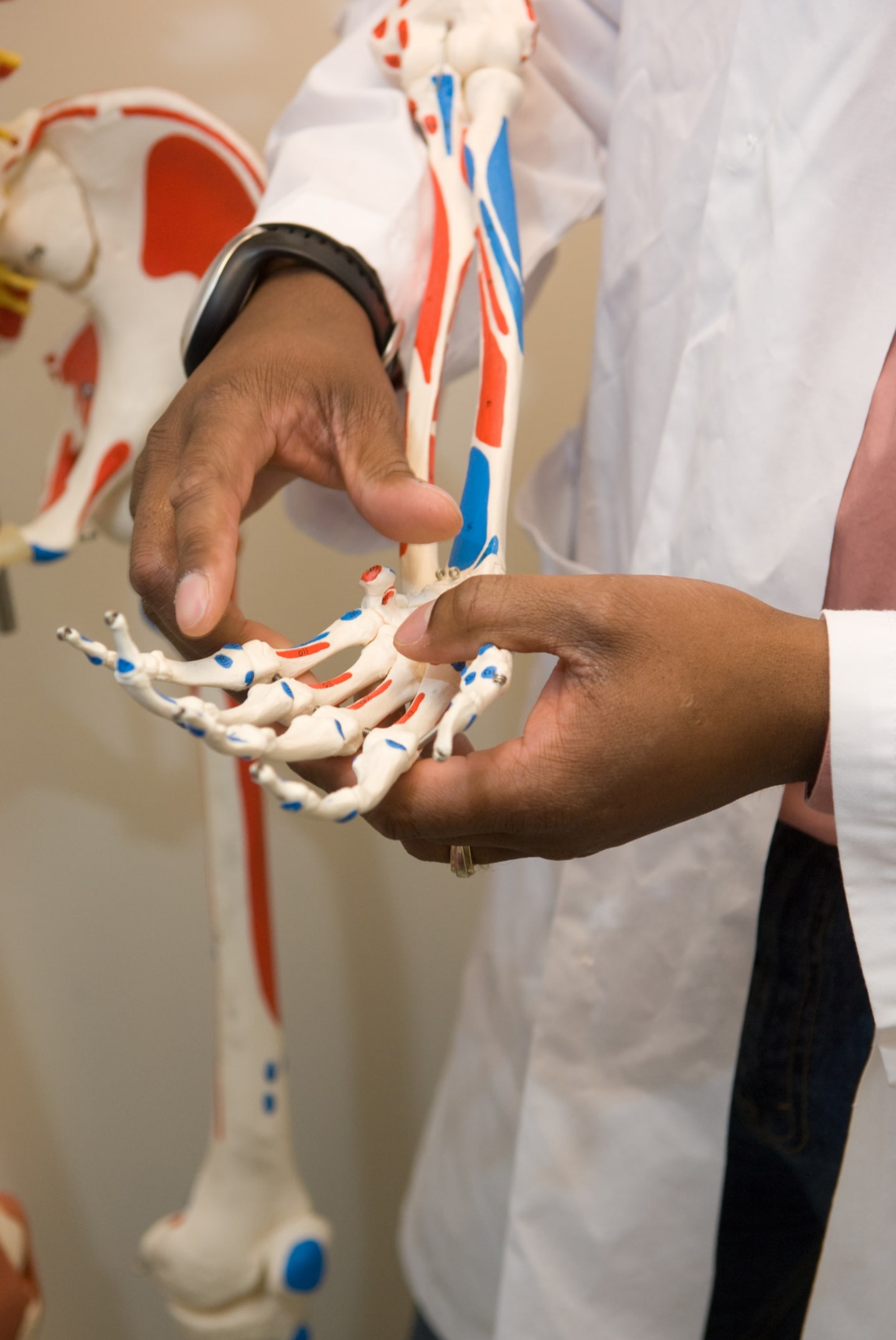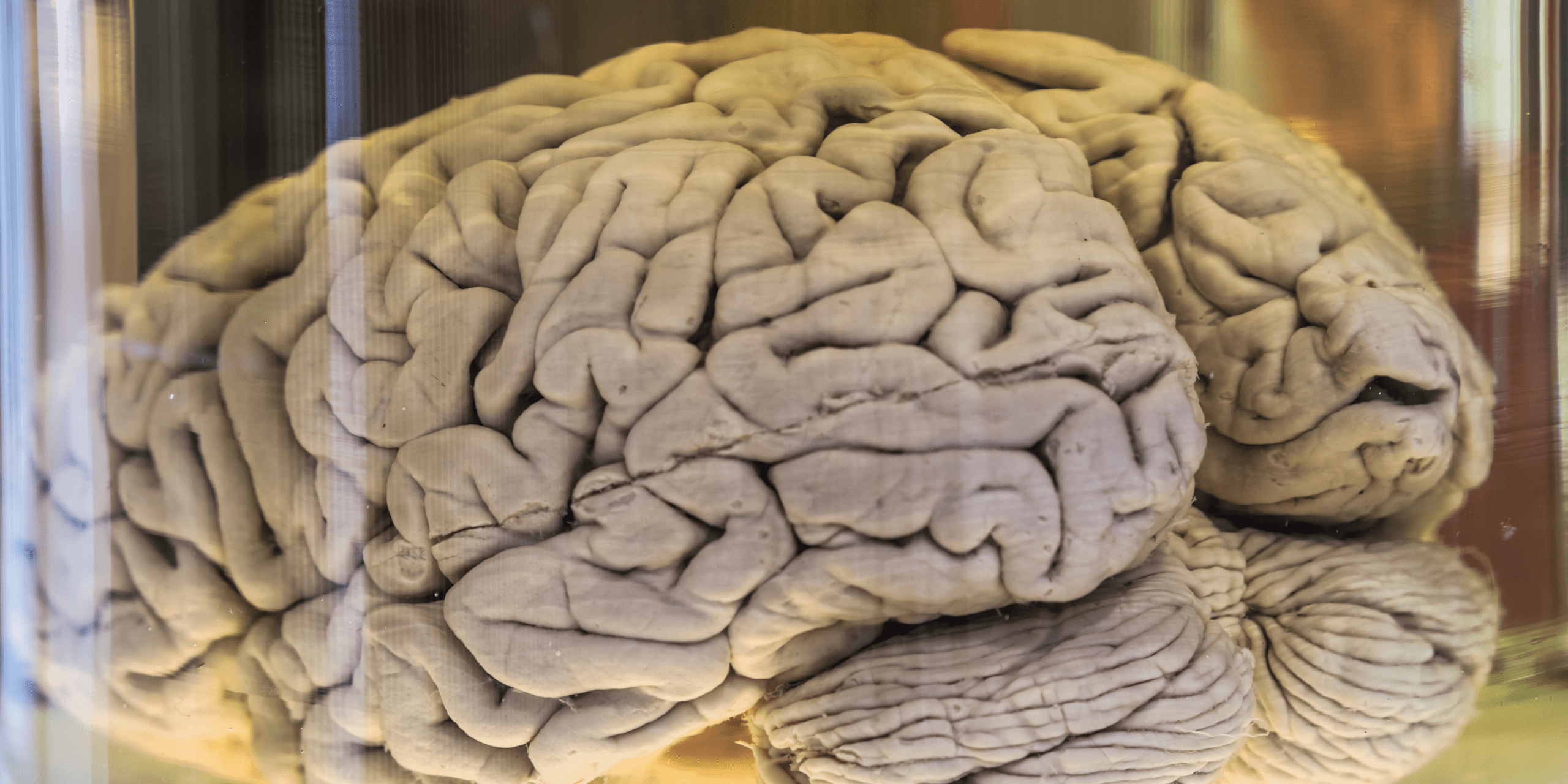Medicine


Gain expert insights in an online summer school in Medicine
Our online Medicine programme is great way for inquisitive students to be exposed to the study of Medicine before committing to longer-term studies.
Explore key systems that keep us alive, how drugs affect the functioning of these and what the anatomy looks like in reality as you perform your own dissections. You will also be introduced to medical research and what’s happening behind the scenes in medical advances.
About Online Insights
Over the course of this programme, participants will take part in virtual seminars, future skills workshops, one-to-one tutorials, as well as group social activities led by current Oxbridge undergraduates.
Students receive a combination of subject-based tuition, one-to-one tutorials, future skills workshops and social activities with students from around the world.
-
Average Class Size Of 5
Maximum 10 students -
1:1 Tutorials
2 x 30-minute sessions each week -
Oxbridge Academics
Tutors from Oxford and Cambridge University -
Future Skills Workshops
Develop key attributes such as personal branding, interview skills and academic writing
For students of all time zones
As there are participants joining from around the globe, Online Insights offers two “streams” – Stream A and Stream B.
Stream A starts in the morning whilst Stream B’s classes take place in the afternoon.
Note – as our faculty are all based in Oxford & Cambridge, all times communicated are in UK time.
To see how the Online Insights programme is structured, please view the timetable.
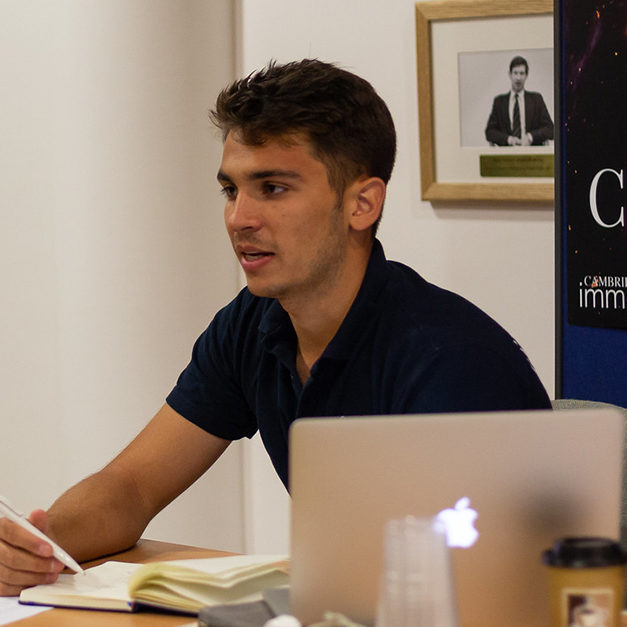
-
Stream A
09:00 - 15:00 (UK time) -
Stream B
14:00 - 20:00 (UK time)
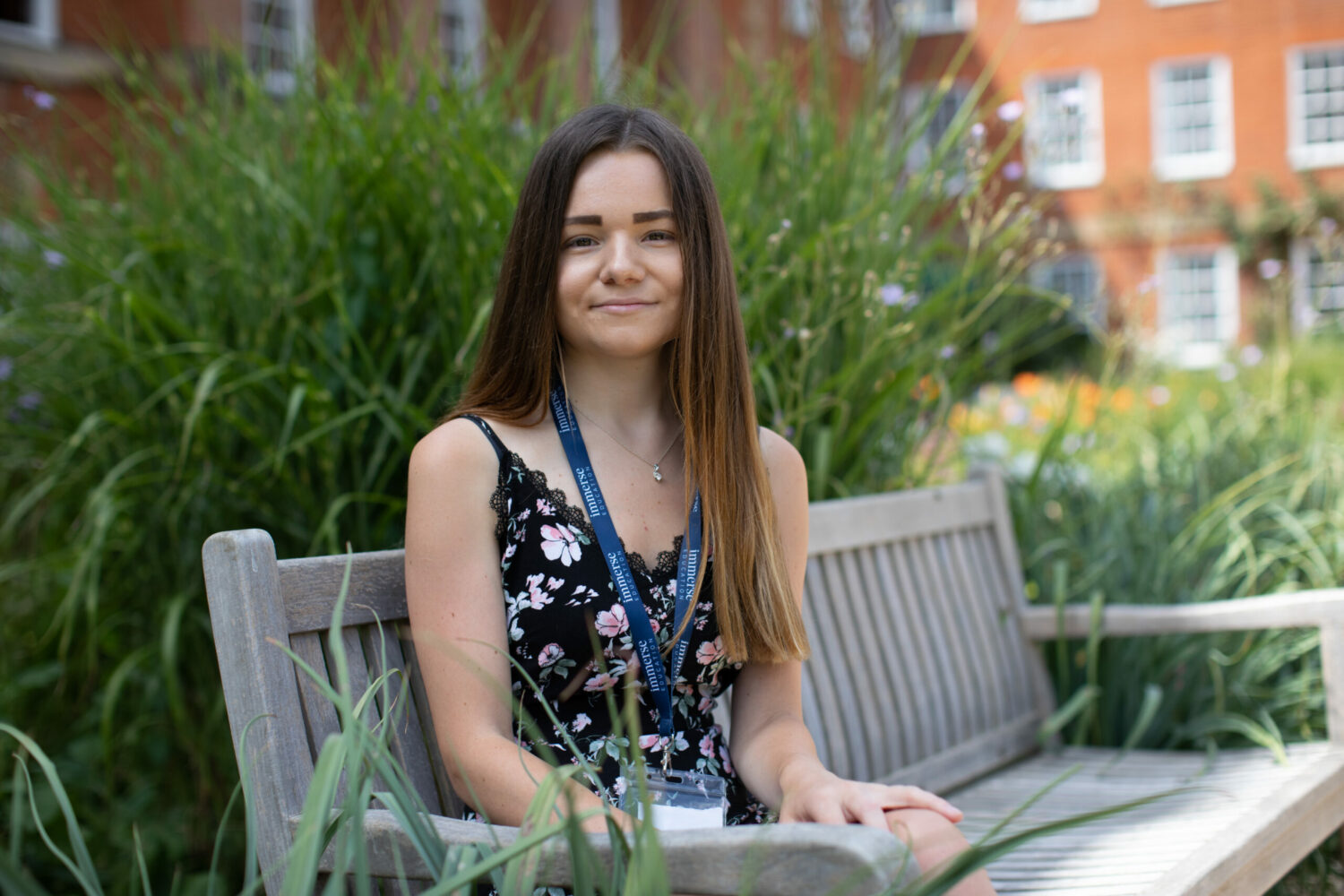
Example tutor:
Hannah C
Her doctoral project is entitled 'Hypertension Explored in Long-term Post-Partum Follow-Up in Later life' and aims to examine the longitudinal effects of hypertensive disorders of pregnancy of future risk of disease progression.
I found the Oxbridge Research Programme classes very interactive. I was able to work one on one with my tutor, which meant that I could ask the questions which I found most important, and allowed me to go more in-depth into what I was most interested in.
My tutor had economics experience from university, which meant that I was able to experience what studying economics at university would be like. I found it was very personal to me because it allowed me to go into my own interests rather than taking a course that would cover a whole variety of economics.
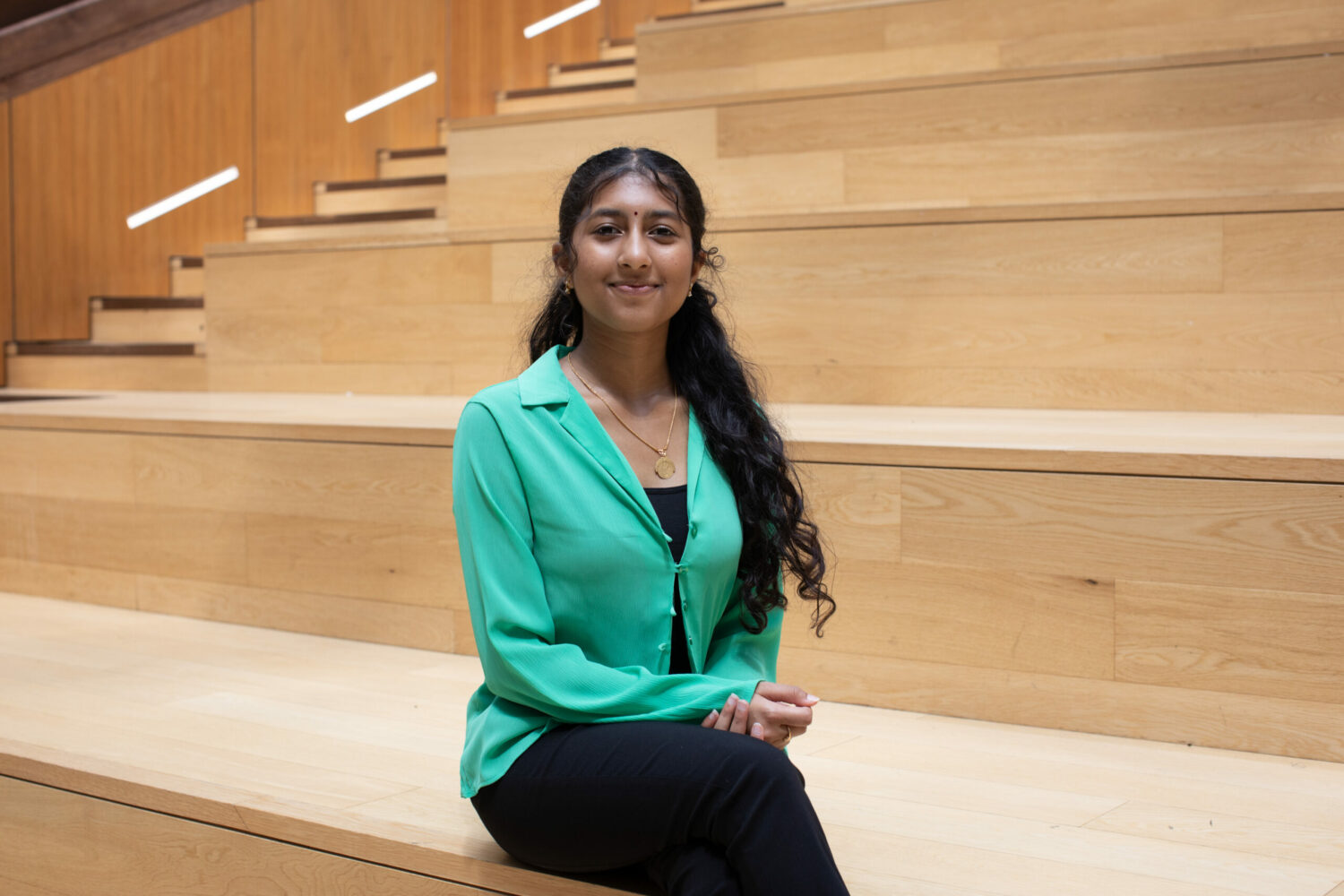
Network with like-minded individuals
Daily social activities with participants around the world
Students can connect with like-minded individuals from around the world, and are encouraged to socialise and make friends through daily activities and games after classes finish.
Activities include virtual college tours, murder mystery parties and a ‘University Challenge’-style quiz.
These sessions are led by Oxbridge undergraduates who act as Mentors for Online Insights participants. This is a fantastic opportunity for participants to hear from students at Oxford and Cambridge University, and receive guidance and advice on studying at one of the world’s top universities.
Network with like-minded individuals
Online Learning Platform

Virtual Classrooms
All sessions are delivered on Zoom’s education platform – the world’s leading virtual classroom software.
Before the course begins, all students will receive a welcome pack that includes information about their tutors, mentors, guest speakers, as well as their programme overview.
Students will also receive an interactive timetable with links to each of their classes.
We offer 2-day intensives and 2-week programmes so that you can learn at a time and pace that suits your current schedule.
Sample Medicine Lessons
-
Module 1 - General Anatomy And Physiology
The human body is a finely tuned and complex machine. Its study can be traced as far back as the embalming of the Pharaohs of Ancient Egypt! Our understanding of anatomy has greatly increased since the development of novel technologies, allowing us to uncover the organs’ microstructures, but scientists across the globe are still focused on uncovering its secrets. Anatomy and physiology are the sciences behind the structures of the body and their functions. In this topic you will explore the different systems of the human body (skeletal, muscular, digestive, respiratory etc) and how they're connected, in order to provide an overview of the human body as a whole. You'll then explore the key systems in-depth, looking at the characteristics and micro anatomical features of several organs through dissection. -
Module 2 - Genetics And Epigenetics
In the 60+ years after the discovery of DNA’s structure, there has been astonishing progress in our understanding of gene function and variability. Genes are a segment of DNA passed down from parents with certain traits to their children. Genes are organised and packaged in units called “chromosomes". After going over chromosomes’ structure, you will first focus on understanding the replication, transcription and translation of DNA, from nucleic acid to protein synthesis. You will also explore the role of the environment on genetics. Finally, you'll consider the most recent breakthrough in genetic engineering, CRISPR gene editing, a tool which allows virtually unlimited editing of the genome of any species! -
Module 3 - Neuroscience
You will be given an overview of the basic microanatomy and physiology of neurons, analyse how these cells produce electrical signals (action potentials) and discuss how the 37 trillion cells of your body can communicate and coordinate with one another. You'll explore the power of the placebo effect, and challenge preconceived notions using a variety of optical, auditory and tactile sensory illusions. -
Module 4 - Medical Breakthroughs
The Nobel Prize in Medicine recognises some of the world’s most important scientific breakthroughs to have revolutionised patient care and our understanding of life. But how are these discoveries made, and more importantly who makes them? You will revisit the principles of the scientific method, delve into the various stages of medical research and the growing necessity for interdisciplinary approaches.
Download Syllabus Overview
Download Syllabus Overview
-
July 1 – 12 2024 (Classic)
£2,125 -
July 15 – 26 2024 (Classic)
£2,125 -
March 29 – April 3 2024 (Classic)
£1,495 -
August 10 – August 11 2024 (Intensive)
£695 -
July 27 – July 28 2024 (Intensive)
£695


